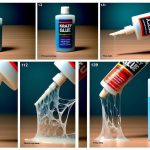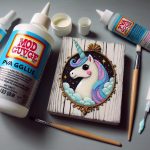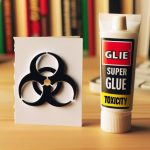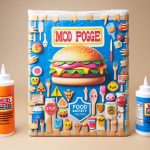Are you tired of dealing with messy, unreliable conductive materials? From fixing to sealing and creating all sorts of projects, sugru has proven to be a game-changer.
But did you know that it also boasts impressive conductivity properties? That’s right, this little wonder material is not just for crafting and repairs – it’s also a powerhouse when it comes to conducting electricity and heat.
But what makes sugru’s conductivity truly remarkable? For starters, it can conduct both electricity and heat, making it useful for a wide range of applications. And with its low resistance value, sugru can easily transfer electricity without losing much energy – something that other conductive materials struggle with. Plus, unlike metal wires or graphite, sugru is flexible and can be molded into any shape or size, making it perfect for intricate electronic projects.
But that’s not all – sugru’s versatility extends beyond its conductivity. It adheres to almost any surface, from plastic to metal to glass and even fabric. And thanks to its waterproof and heat-resistant properties, sugru’s conductivity remains consistent in various environments. Say goodbye to messy wires and hello to the convenience and reliability of sugru.
So whether you’re an avid DIYer or simply looking for an easy solution to your electronic needs, don’t overlook the power of this incredible material.
Keep reading to discover more about how sugru is revolutionizing the way we think about conductivity.
Table of Contents
What is Sugru?
Although Sugru is not typically considered a conductive adhesive, it does have applications in electronic projects as an insulator or protective layer.
Its unique blend of silicone rubber and carbon black may offer minor conductivity, but it cannot compare to traditional metal-based materials. Therefore, it is not suitable for high-voltage situations or critical electrical work and should not be used as a substitute for professional insulation materials.
However, some users have reported success using Sugru for tasks such as wire insulation and repairing damaged cables or electronic components.
Does Sugru Conduct Electricity?
When it comes to conductivity, Sugru may not be the first thing that comes to mind. However, its unique insulating properties make it a valuable adhesive for various electronics projects. The combination of silicone rubber and carbon black in Sugru creates a protective layer that can cover exposed wires or delicate electronic components, offering insulation against shocks and potential damage.
Moreover, its waterproof and dustproof capabilities make it ideal for protecting electronics from environmental elements. With Sugru’s moldable and adhesive properties, it is effortless to apply and shape onto different surfaces, providing versatile solutions for specific electronic projects.
It is essential to note that while Sugru is a valuable adhesive for electronics projects, it should not be used as a replacement for professional electrical insulation materials in high-voltage or critical applications.
Safety should always be the top priority when working with electricity. Therefore, proper testing and application are crucial when using Sugru in electronics projects.
| Property | Description | Use in Electronics Projects |
| Insulator | Sugru’s unique combination of silicone rubber and carbon black provides insulation against shocks and potential damage. | Can be used to protect exposed wires or delicate electronic components. |
| Waterproof and Dustproof | Sugru’s properties make it resistant to water and dust, making it ideal for protecting electronics from environmental elements. | Perfect for use in outdoor or rugged electronic projects. |
| Moldable and Adhesive | Sugru is moldable and adhesive, making it easy to apply and shape onto various surfaces. | Allows for customized solutions for specific electronic projects. |
While Sugru may not have the same conductivity as traditional metal-based materials, its versatility and ease of use make it a popular choice for DIY enthusiasts and hobbyists in electronics projects.
However, it is essential to understand its limitations and use it responsibly, avoiding high-voltage or critical applications.
Properties of Sugru
Sugru is a special and versatile adhesive that sets itself apart from traditional adhesives with its five exceptional properties: flexibility, strength, versatility, ease of use, and removability.
These remarkable qualities make it the top choice for all types of projects, from simple repairs to imaginative DIY creations.
Flexibility:
The flexibility of Sugru is one of its key properties. Unlike typical adhesives that can become brittle and prone to cracking over time, Sugru maintains its flexibility even after it has fully cured.
This makes it perfect for fixing cables and other items that require movement without compromising the bond.
Strength:
Once cured, Sugru becomes just as strong as silicone rubber and can withstand high temperatures, powerful forces, and water.
This makes it ideal for a wide range of applications, from repairing household items to outdoor fixes.
Versatility:
Another standout feature of Sugru is its versatility. It can bond with a variety of materials such as ceramics, glass, metal, wood, plastics, and fabrics.
This opens up endless possibilities for repairs and DIY projects.
Ease of Use:
Unlike traditional adhesives that require specialized equipment or tools for application, Sugru can be easily shaped with your hands and applied directly to the surface that needs repair. This makes it user-friendly for people of all skill levels.
Removability:
Despite its toughness and durability, Sugru can still be removed with a sharp blade if necessary. This allows for easy adjustments or corrections during the application process.
How Does Sugru Interact with Electric Currents?
Sugru’s conductivity is not comparable to that of metals, as it is not highly conductive. However, it does possess some level of conductivity due to the inclusion of carbon black in its formula.
This quality allows it to be utilized in electrical applications such as wire insulation, cable repairs, and creating protective barriers around electronic components.
Its primary function in these scenarios is to act as an insulator and protect against the flow of electric current. It is crucial to note that sugru should not be used as a substitute for professional electrical insulation materials in high-voltage or critical applications, as it may pose safety risks.
| Property | Description | Effect on Electrical Interactions |
| Flexibility | Sugru is a pliable adhesive that retains its bonding strength even when bent or stretched. | Allows for the creation of a tight seal around irregularly shaped electrical components. |
| Strength | Once dried, sugru forms into a robust rubber-like material capable of withstanding physical and environmental stress. | Provides protection against external forces that may damage delicate electronic components. |
| Versatility | Sugru can bond with a diverse range of materials, including metals, plastics, ceramics, and fabrics. | Makes it suitable for use in various electrical applications, such as wire insulation and cable repairs. |
| Ease of Use | Sugru is effortless to shape and manipulate, making it ideal for DIY projects and repairs. | Allows for the creation of protective barriers around electronic components with ease. |
| Removability | Sugru can be easily removed within 24 hours of application, making it reversible. | Enables adjustments and corrections without causing damage in electrical applications. |
| Conductivity (limited) | Sugru contains carbon black, giving it some level of conductivity. | Allows for its use as an insulator in electrical applications, but not as a replacement for professional insulation materials in high-voltage or critical situations. |
Adhesion Properties of Sugru
Sugru possesses unmatched adhesion capabilities in comparison to conventional glues.
Unlike traditional glues that only adhere to specific materials, Sugru can bond with a wide range of surfaces, including glass, metal, plastics, and fabrics. This makes it an adaptable and long-lasting option for a variety of DIY projects and repairs.
Moreover, Sugru’s flexibility enables it to conform to uneven surfaces without cracking or breaking, making it more reliable than traditional glues in situations that require movement or flexibility. Its resistance to high temperatures, powerful forces, and water further distinguishes it from traditional glues, making it suitable for both indoor and outdoor use.
Additionally, Sugru’s removability with a sharp blade allows for experimentation without the fear of damaging items, which is not possible with most traditional glues.
Conductivity of Materials
When considering materials for conductivity, Sugru may not be the first to come to mind. However, its blend of silicone rubber and carbon black does give it some level of electrical conductivity, albeit much lower than the metals commonly used for gluing.
To better understand how Sugru’s conductivity compares to other common gluing materials, let’s examine a comparison table:
| Material | Conductivity | Common Uses in Electrical Applications |
| Sugru | Low to medium (<10^-3 S/m) | Wire insulation, creating barriers around electronic components |
| Metal Glue (e.g. Super Glue) | High (~10^5 – 10^8 S/m) | Bonding metal parts or wires in electrical circuits |
| Electrical Tape | Medium to high (~10^-2 – 10^-1 S/m) | Insulating wires and cables, sealing electrical connections |
| Soldering Flux | High (~10^-1 – 10^0 S/m) | Aiding in the soldering process for strong electrical connections |
As shown in the table, Sugru’s conductivity falls within the low to medium range, while metals used for gluing have significantly higher levels. This is due to Sugru’s primary composition as an insulator, with carbon black providing some level of conductivity.
Although Sugru may not have the same level of conductivity as other materials, it still has practical uses in electrical applications. Its insulating properties make it suitable for protecting delicate electrical components, and it can also be used for creating custom barriers or covers for electronics.
However, it should not be used as a replacement for professional electrical insulation materials in critical or high-voltage situations.
Metals as Excellent Conductors
Metals are renowned for their exceptional ability to conduct electricity, making them highly sought-after materials in a variety of industries, including electronics and power transmission.
But what sets metals apart from other materials when it comes to electrical conductivity?
Free Electrons
As mentioned earlier, metals possess free or delocalized electrons that are not bound to any specific atom.
These free electrons enable easy movement through the metal lattice, allowing electricity to flow effortlessly through the material.
Metallic Bonding
The atoms in a metal are arranged in a unique lattice structure, with the free electrons moving between them.
This special bonding arrangement facilitates efficient transfer of electrical charges and thermal energy, making metals superior conductors.
Low Resistivity
One of the key advantages of metals is their low resistivity, which means they offer minimal resistance to the flow of electricity.
This is due to the unrestricted movement of electrons and the effective metallic bonding, making it easier for electricity to pass through the material.
High Thermal Conductivity
Besides their excellent electrical conductivity, metals also have high thermal conductivity.
This means they can efficiently transfer heat, making them highly useful in applications where heat needs to be dissipated quickly.

Ductility
Most metals are ductile, meaning they can be drawn into thin wires without breaking. This property is crucial in electrical wiring, where the metal needs to be shaped into slender wires to carry electricity.
Moreover, metals can maintain their exceptional conductivity even at high temperatures, making them ideal for use in high-power applications. Additionally, they are relatively inexpensive and readily available, making them a popular choice in various industries.
Sugru as an Insulator or Protective Coating
Sugru can serve as an efficient insulator or protective coating for electronic devices. Its unique formula offers exceptional electrical insulation, thermal stability, and water-repellent properties, making it an ideal choice for various DIY projects involving electronic gadgets.
While larger-scale or high-voltage applications may require specialized insulating materials, sugru stands out as a versatile and dependable solution for protecting and insulating electronic devices.
| Properties | Sugru | Specialized Insulating Materials |
| Electrical Insulation | Superb | Varying levels of effectiveness |
| Thermal Stability | Can withstand extreme temperatures (-50°C to 180°C) | Capable of withstanding even higher temperatures |
| Water-Repellent Properties | Protects against moisture damage | Varying levels of effectiveness |
| Adhesion Strength | Reliable and long-lasting bonds with various materials | Varying levels of strength and adhesion with different materials |
| Suitable Applications | Diverse range of DIY projects involving electronic devices | Larger-scale or high-voltage applications |
| Cost-Effectiveness | Affordable and easily accessible option for DIY projects | May be more expensive and specialized for certain applications |
In conclusion, while sugru may not always be the optimal choice for insulation or protective coating needs, it remains a versatile and cost-effective option for various DIY projects involving electronic devices. Its exceptional electrical insulation, thermal stability, water-repellent properties, and reliable adhesion make it a valuable addition to any toolkit.
Whether you need to fix frayed cables, insulate switches, or waterproof electronic gadgets, sugru is a dependable and efficient solution that can save time and money.
Also Read: How Long Does Sugru Take To Set?
Conclusion
In conclusion, sugru is more than just a versatile adhesive – it’s a game-changing material with impressive conductivity capabilities.
Its unique blend of flexibility, strength, and ease of use make it stand out from traditional adhesives, while its ability to be easily removed sets it apart from other conductive materials. While sugru may not match the conductivity of metals, it still has practical applications in electrical projects such as wire insulation and protecting delicate components.
And with its affordable price and accessibility, sugru offers a cost-effective alternative to specialized insulating materials for smaller-scale projects.






